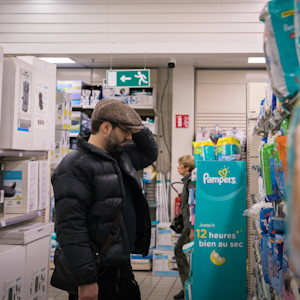Slack is making big moves in localization. Last month, Slack wrote about how they localize their platform to increase their brand’s global accessibility. The article makes it clear that the brand is upholding core values as they expand globally. Their localization team holds the reins in ensuring this expansion connects seamlessly with users all over the world. After all, a good localized product feels native to the user. First, the article starts with giving the reader the ability to translate the post into French, German, Spanish, and Japanese. round of applause
When a company is going from one language at the beginning of 2017 to five, it takes a robust and scalable strategy. Along with a localization strategy, it’s crucial to have strategic partners in this endeavor. We are happy to be one of those partners.
We’ll let Anca Greve, the Localization Manager at Slack explain more:
Why is localization important?
Localization builds trust with our customers in a language that they understand, with cultural references that are familiar to them.
To successfully localize, we knew we had to adapt the Slack voice to other cultures. And although much of localization is translation, there are other considerations, such as the fact that our global users have grown up with certain customs, and a certain world view. The witty remarks we make, the anecdotes we employ, the references to a familiar idiom — these are the kinds of things we are extra thoughtful about to build trust with our global users.
Dan Cobe, Team Lead of Customer Success explains, “Slack was adamant about maintaining their playful/witty brand voice in their localized Product. We tested about 10–12 linguists for each of their four languages, before we found four per language that they were happy with. Slack also has extremely detailed style guides specific to each language. Finally, they created a Slack environment to communicate directly with the linguists. Not only does it facilitate communication, but it also ensures that the linguists are familiar with Slack’s product and brand voice (killing two birds with one stone).”
Anca continues to drive home the main point, that localization is key to global growth and brand identity:
The localization team holds dear Slack’s mission, as well as our company values, because they’ve helped us build the foundation for quality in localization and guide our decisions around formality, voice and tone, and inclusiveness. Much of our work still lies ahead of us, as we continue to scale, but we believe that a well-localized product means that it connects seamlessly with our users and their working lives, no matter where they might be located.
We asked Dan to tell us how Smartling helped Slack get up and running quickly with localization as an integral key for growth:
“I think we can point to how Smartling’s automation allows them to scale quickly. They launched their product (and help center, though that was far less volume) in four languages in a matter of months, because we drastically improved their process. We have an API integration for their Product that allows their developers to seamlessly send new source content and retrieve translations.”
Cobe explains, and continues to dive into the specifics of how they scale: “The Zendesk Connector automatically sends translations back to the right location in their Zendesk instance and automatically resubmits updated source content on articles that have already been translated. They have very few manual tasks required (aside from the Localization Team packaging content into Jobs) to get translations back to the desired location. This helped them scale from a content volume standpoint, and will also help them scale with new languages when the time comes.”
As Slack continues to rock everyone’s world, (in 100 countries and growing) here at Smartling, we look forward to helping the localization team grow into even more markets and languages. After all, Slack is building the platform that connects teams with the apps, services, and resources they need to get work done. Let’s go get work done. No matter where you’re located.
Photo by Park Troopers on Unsplash By: Kristin Donaldson (Special thanks to Anca Greve and Dan Cobe)








